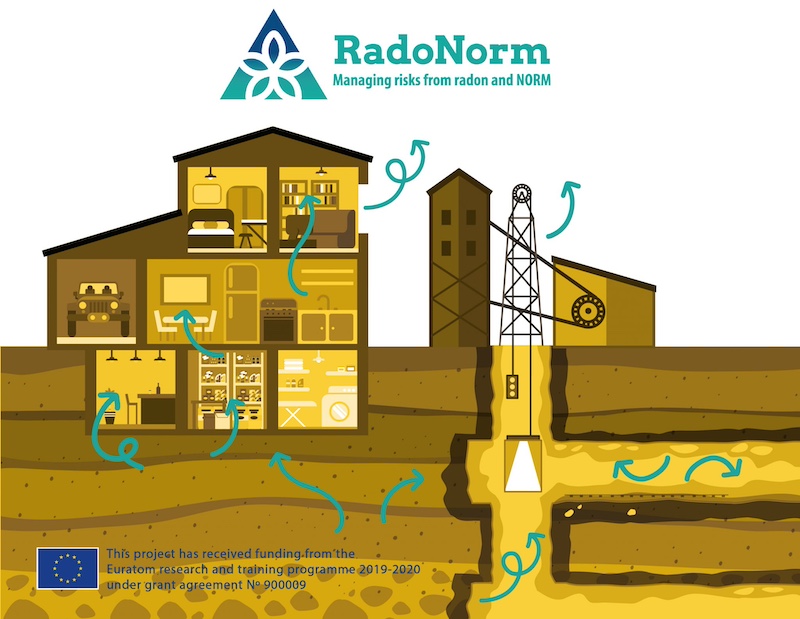
European Radon Day marked with citizen science event
Meritxell Martell
Dec. 5, 2023, 9:06 a.m.
Radon is a radioactive gas that is odourless, colourless and tasteless. Radon has the potential to accumulate indoors, posing a serious risk of lung cancer, a risk enhanced by exposure to air pollution and smoking. One in ten lung cancer cases in Europe may be due to indoor radon exposure. Other Naturally Occurring Radioactive Materials (NORM), particularly from mining areas and waste from non-nuclear industries, such as oil and gas industry, are also a source of concern as they can contribute to increased radiation doses.
The RadoNorm European project investigates the scientific, technical and societal risks from radon exposure situations, both radon and NORM, to support good management of these materials and effective radiation protection.
European Radon Day on 7th November was marked by a webinar organised by seven citizen science initiatives investigating radon testing and mitigation in Italy, Hungary, Poland, Portugal, Slovakia, Slovenia and Spain. Each initiative presented their objectives and engagement activities. These citizen science initiatives are funded and coordinated by the European project RadoNorm. The recording is available at this link.
The concluding remarks from the webinar were highlighted by the coordinator of the RadoNorm citizen science projects, Dr. Meritxell Martell, and are summarised as follows:
- Globally, there is a notable scarcity of citizen science projects focused on radon. The RadoNorm citizen science projects stand as pioneering endeavours in most of the seven countries involved;
- There is a general lack of knowledge of radon, as it is one among numerous risks. This raises the critical question of instilling trust among citizens in authorities who may be perceived as insufficiently addressing the mitigation of radon exposure. How can this trust deficit be effectively bridged?
- Citizen science projects on radon involve a wide variety of stakeholders, including teachers, students, doctors, workers, residents, researchers, etc., fostering a broad engagement in the initiatives;
- Authorities may face challenges comprehending the risks associated with radon. As experts or advocates for citizen science, our responsibility lies in raising awareness among authorities about the dangers of radon, thereby encouraging informed decisions to safeguard public health.
- The anticipated outcomes of RadoNorm citizen science projects encompass a comprehensive range of deliverables, such as, guidelines, training sessions, workshops, radon exposure maps, communication materials and educational lectures, among others.
The webinar underscored the potential for motivating students to actively participate in radon-related activities by emphasising that “science around radon is fun”. Fostering a collaborative exploration on radon through citizen science projects could encourage homeowners to measure and could empower them to act against high indoor radon by taking protective measures. More information on the RadoNorm citizen science projects and their activities at: https://www.radonorm.eu/activities/radonorm-citizen-science/